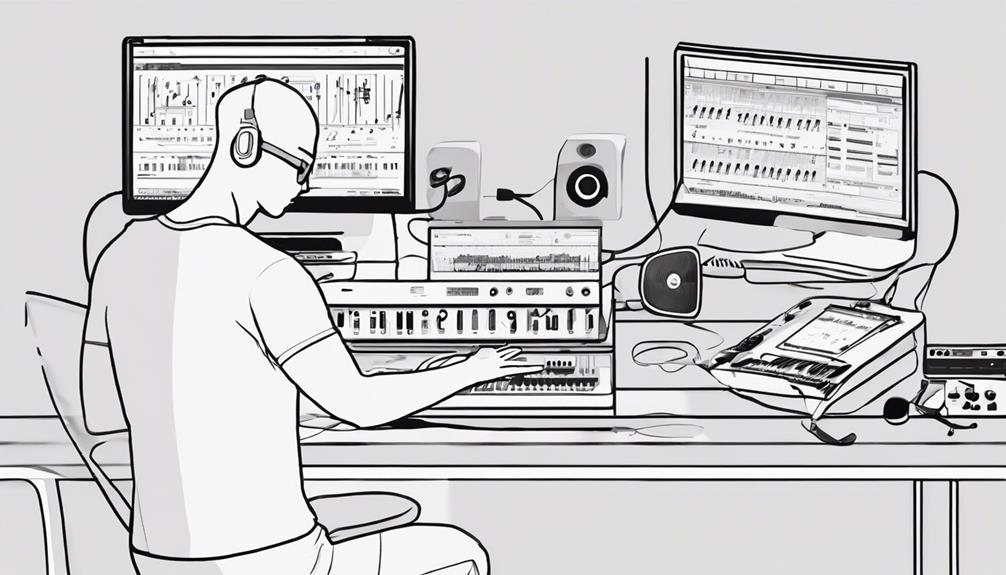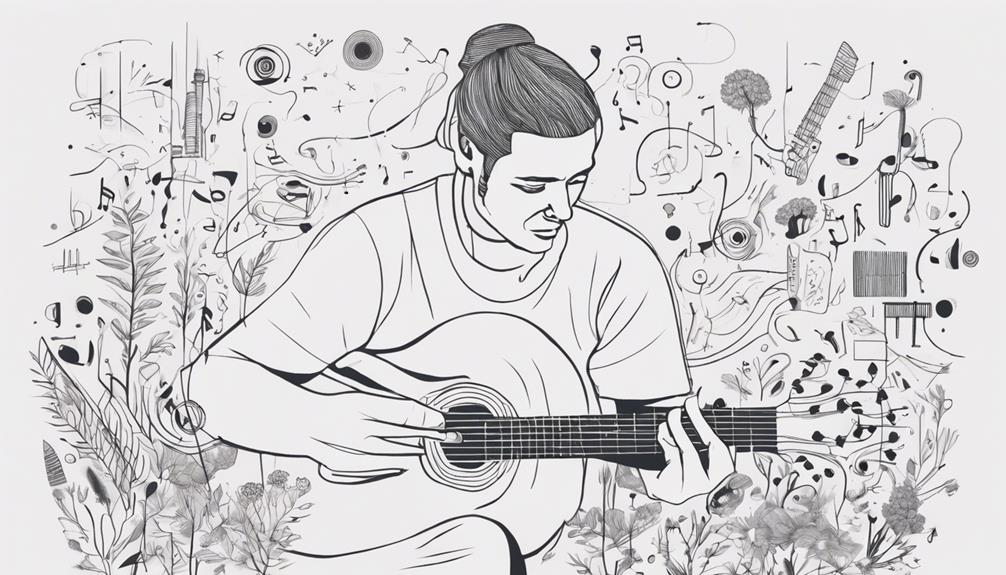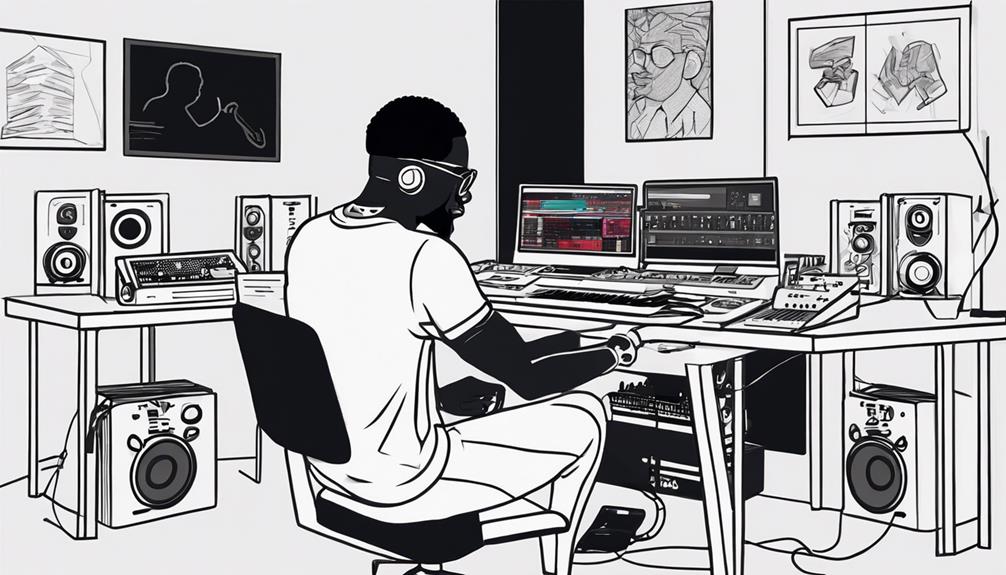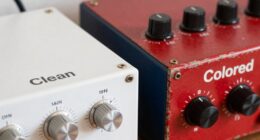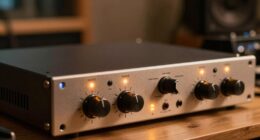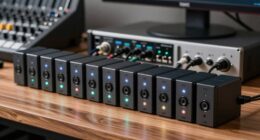Ready to begin your music production journey? First, gather essential gear like a computer, DAW software, studio monitors, headphones, and an audio interface. Organize your home studio with acoustic treatment and a personalized setup for maximum creativity. Experiment with synths and effects to create unique sounds, and learn your DAW inside out to boost efficiency. Focus on music theory, software mastery, and mixing techniques to enhance your skills. Lastly, explore even more tips and tricks to elevate your music production game!
Key Takeaways
- Choose essential equipment: computer, DAW software, studio monitors, headphones, audio interface.
- Set up a home studio with acoustic treatment, good acoustics, and minimal noise.
- Explore synths and effects for sonic variety and enhancement.
- Utilize DAW efficiently with shortcuts, virtual instruments, and effects.
- Develop music skills in theory, software, synthesis, mixing, and mastering.
Essential Equipment for Music Production
To begin music production, you need essential equipment such as a computer, digital audio workstation (DAW) software, studio monitors, and headphones. These tools are indispensable throughout the music production process, from recording sessions to the mixing and mastering stages.
An audio interface is also essential as it allows you to connect microphones, instruments, and other audio sources to your computer for seamless recording and playback. Quality microphones play a significant role in capturing clear and detailed sound during recording sessions, ensuring high-quality results.
Additionally, studio monitors are necessary for providing accurate and balanced sound reproduction, aiding in making informed decisions during the mixing and mastering stages. Headphones are required for monitoring audio details and making precise adjustments during the production process, helping you achieve professional-sounding tracks.
Investing in these key pieces of equipment will set you on the right path for successful music production endeavors.
Setting Up Your Home Studio
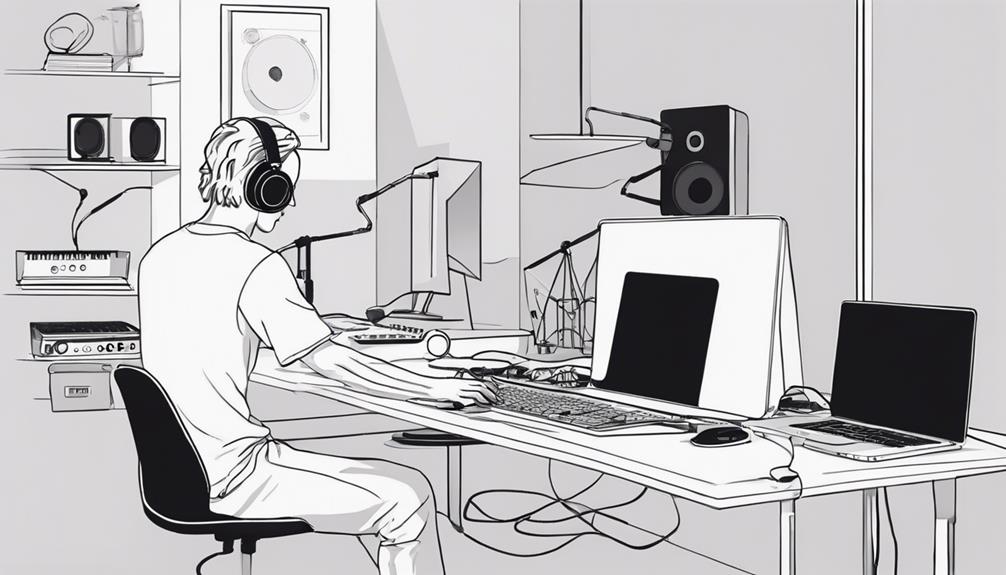
Consider selecting a space that offers good acoustics and minimal noise when setting up your home studio. To optimize your music production environment, you should:
- Invest in acoustic treatment: Enhance sound quality by reducing unwanted echoes and reverberations in your home studio.
- Organize your workspace: Keep cables and equipment tidy for a more efficient and creative workflow.
- Personalize your setup: Add MIDI controllers, synthesizers, and outboard effects to tailor your home studio to your creative needs.
Creating a functional home studio involves essential equipment like a computer, DAW software, audio interface, studio monitors, and microphones. By incorporating these elements and considering acoustic treatment, you can establish a conducive environment for music production.
Additionally, personalizing your setup with MIDI controllers, synthesizers, and outboard effects allows for greater creative flexibility. Remember to maintain a clean workspace to foster a productive and inspiring atmosphere in your home studio.
Exploring Synths and Effects
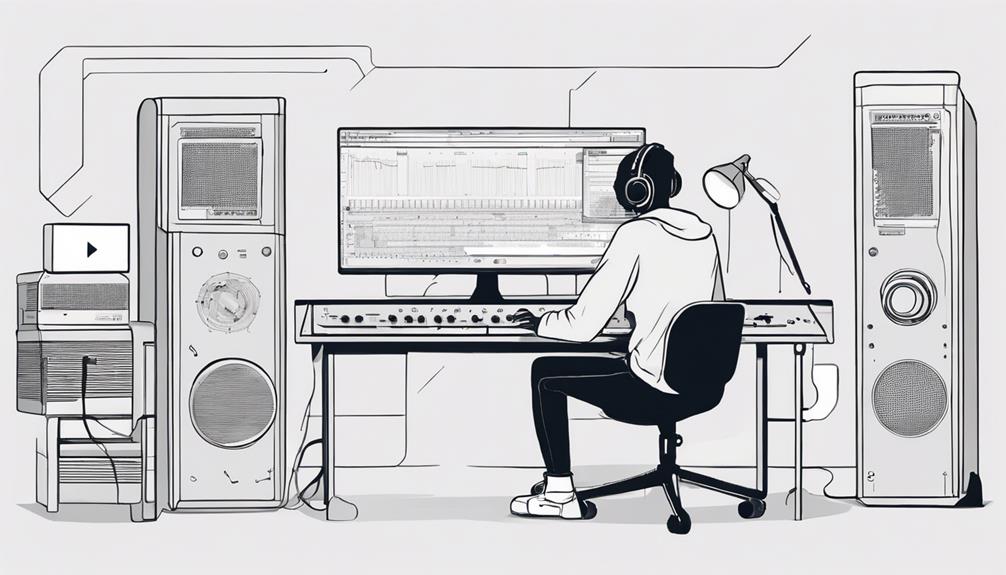
Immerse yourself in the world of synthesizers and effects to discover new sonic possibilities in your music production journey. Synthesizers, such as analog, digital, and wavetable, each offer unique sonic characteristics that can shape your tracks in different ways.
Effects like reverb, delay, and distortion play an important role in enhancing and adding depth to your sounds.
By delving into the domain of synths and effects, you open doors to experimentation and creativity. Take the time to explore various synth presets and effect combinations to craft distinctive sounds that set your music apart.
Understanding how to manipulate parameters within both synthesizers and effects allows you to tailor your sound to your liking and create signature elements that define your style.
Whether you're aiming for a vintage analog vibe or a futuristic digital sound, incorporating synths and effects into your music production process can elevate your tracks to new heights.
Experiment, tweak, and innovate to reveal the full potential of these sonic tools.
Utilizing Your DAW Effectively
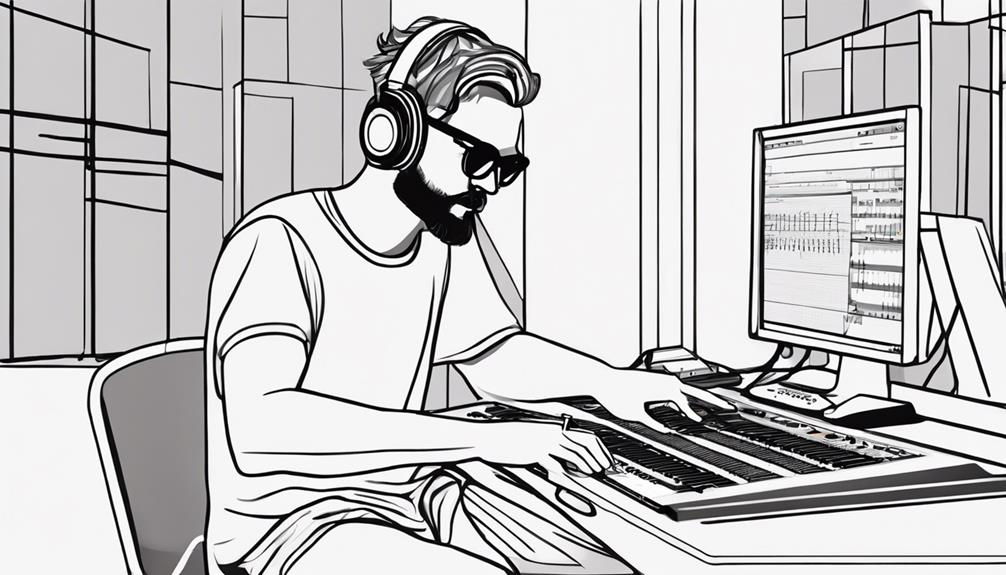
Maximize your music production efficiency by mastering your Digital Audio Workstation (DAW) interface and tools to streamline your workflow.
Here are some tips to help you utilize your DAW effectively:
- Familiarize Yourself: Get to know the interface, tools, and features of your DAW for smoother navigation.
- Speed Up with Shortcuts: Learn essential keyboard shortcuts and workflow techniques to work more efficiently.
- Enhance Creativity: Make use of virtual instruments, MIDI controllers, and audio effects within your DAW to explore new sounds and textures.
Developing Music Production Skills
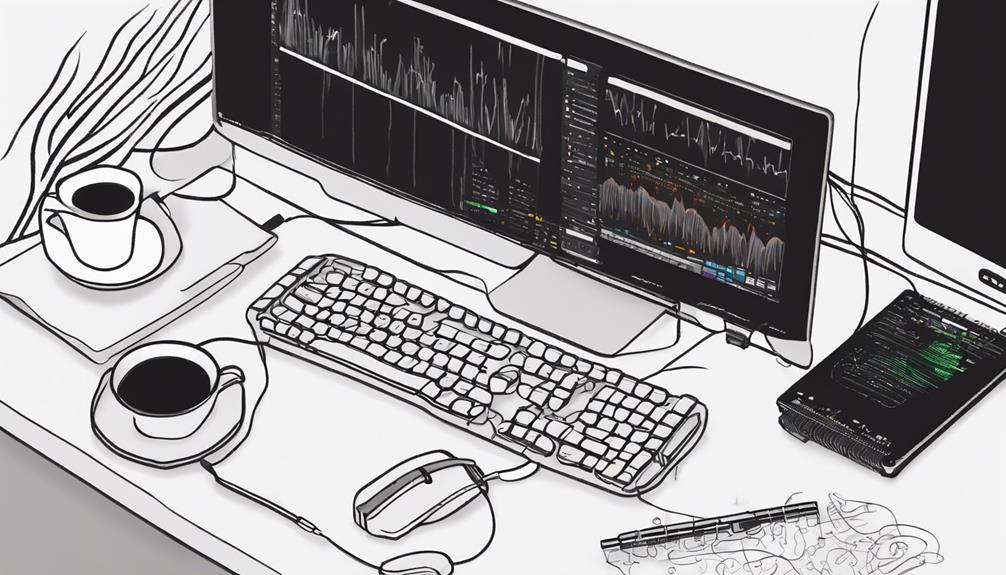
To advance your music production journey, focus on developing essential skills in music theory, composition, and instrument proficiency.
Mastering music production software such as Ableton Live and Logic Pro will help you efficiently compose and arrange tracks. Understanding DAW features, plugins, and effects is vital to enhancing the quality and creativity of your music production.
Immerse yourself in studying sound synthesis, mixing techniques, mastering, and audio manipulation to refine your production skills further.
By exploring different genres and production techniques, you can broaden your musical horizons and develop a versatile skill set in music production.
Remember, each new skill you acquire adds another layer of depth to your production journey, enabling you to create music that truly reflects your artistic vision.
Stay committed to honing your craft, and your dedication will certainly shine through in the music you create.
Continuous Learning in the Industry
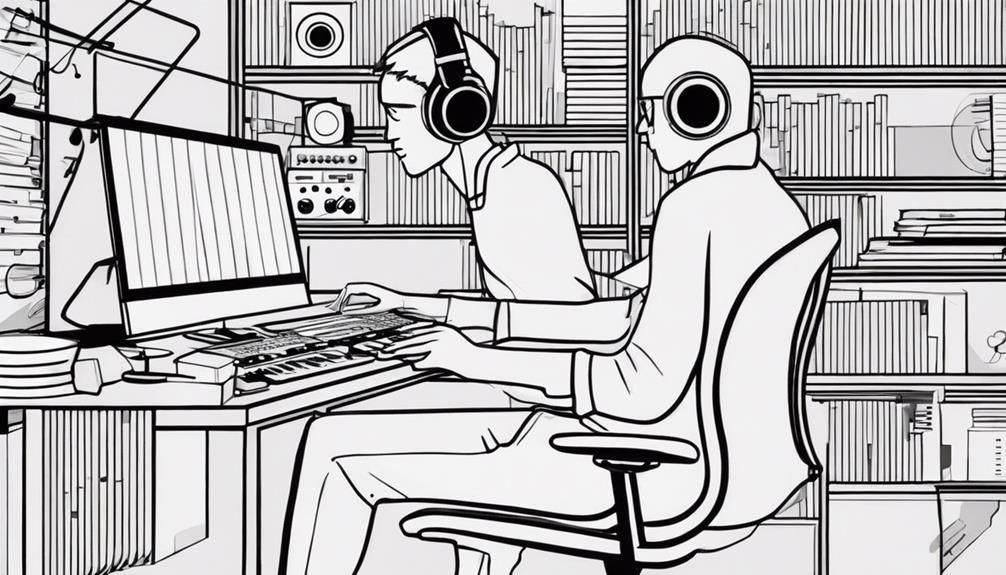
Explore various avenues for continuous learning in the music production industry to stay ahead of the curve and enhance your skills.
- Enroll in online courses: Enhance your music production skills through structured online programs tailored to different expertise levels.
- Engage with industry professionals: Join music production forums to connect with experts, share experiences, and gain valuable insights.
- Stay updated on trends: Attend music production conferences and seminars to learn about the latest trends and techniques shaping the industry.
Recording Your Instruments and Sounds
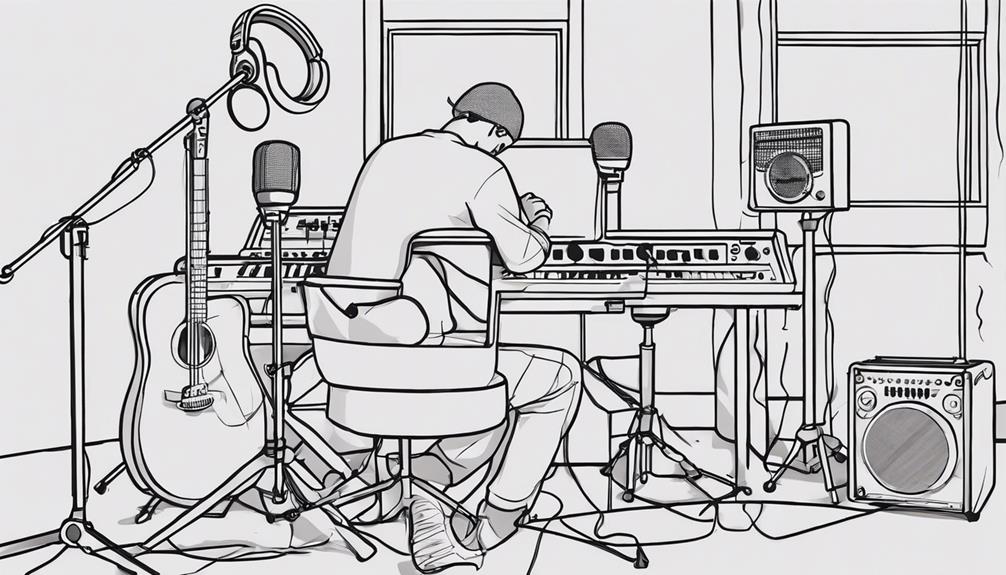
To guarantee the best quality recordings for your music production projects, mastering the art of recording your instruments and sounds is vital. Start by using a high-quality microphone to capture the nuances of each instrument.
Strategic microphone placement is essential in achieving the desired tone and balance in your recordings. Experiment with different placements to find the best sound for each instrument. Consider adding a pop filter to minimize unwanted plosives and enhance vocal recordings.
When recording, wear headphones to prevent sound bleed and maintain clarity in your recordings. Monitoring through headphones allows you to focus on the details of the sound without interference.
Mixing and Mastering Techniques
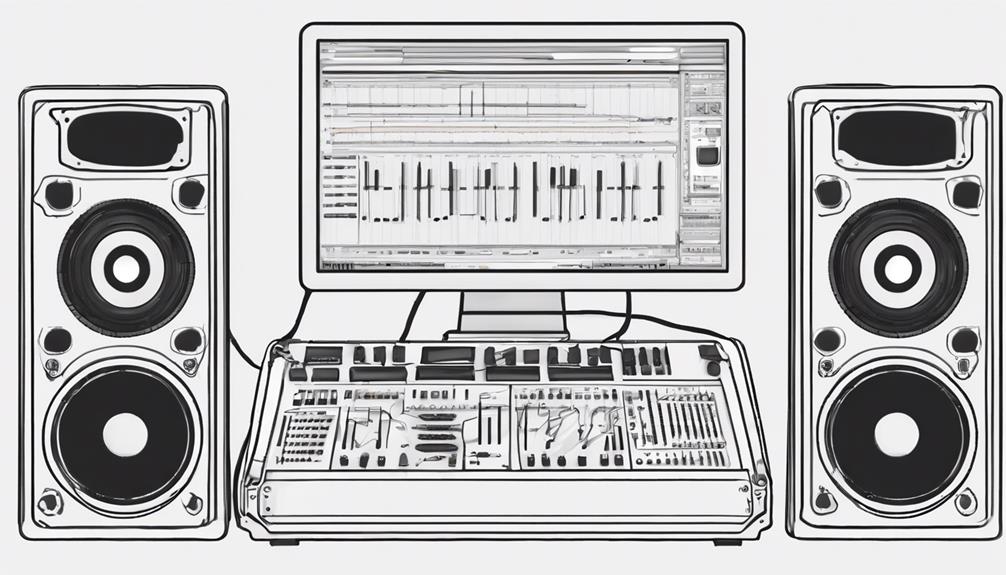
When tackling mixing and mastering techniques in music production, focus on blending tracks smoothly and enhancing overall audio quality. To achieve a professional sound, consider the following:
- Utilize EQ adjustments: Tailor the frequency balance of each track to prevent muddiness or harshness.
- Apply compression effectively: Control dynamics and make sure all elements are well-balanced in the mix.
- Experiment with panning: Create depth and space by placing different instruments across the stereo field strategically.
Mastering involves the final touches to perfect your music production. It includes fine-tuning the overall sound, adjusting levels, and preparing tracks for distribution.
Incorporate reference tracks to guide your decisions and use mastering tools to enhance the quality and impact of your final product.
Frequently Asked Questions
How Do Beginners Start Producing Music?
To begin producing music as a beginner, choose a digital audio workstation (DAW) like Ableton Live or Logic Pro. Invest in essential equipment such as a computer, audio interface, and studio headphones. Learn basic techniques and experiment with sounds.
Can I Teach Myself Music Production?
Like a painter with a blank canvas, you can teach yourself music production. With dedication and practice, online resources offer a path to mastering this craft. Develop your unique style and techniques through self-teaching.
How to Produce Music Step by Step?
Start by mastering music theory, software, and arranging. Experiment with sound synthesis and mixing. Keep learning and practicing to evolve. Immerse yourself in composition and audio manipulation. Enhance your skills gradually to produce music step by step.
Can I Be a Music Producer With No Experience?
You can absolutely become a music producer with no experience. Immerse yourself in basic music theory and online tutorials. Many successful producers started from scratch. Dedication, passion, and a willingness to learn are key ingredients for success. Getting started in music production is easier than ever with the abundance of affordable software and free resources available online. Experimenting with different digital audio workstations (DAWs) can help you find the right tools that suit your style and workflow. Remember, the key is to stay consistent and keep exploring new techniques as you grow your skills.
Conclusion
Now that you have all the essential equipment and knowledge to get started on music production, the possibilities are endless!
Immerse yourself in the world of synths and effects, experiment with your DAW, and hone your mixing and mastering skills.
With dedication and continuous learning, you'll be on your way to creating music that will blow minds and shake the industry.
So what're you waiting for? Get started and let your creativity soar!

